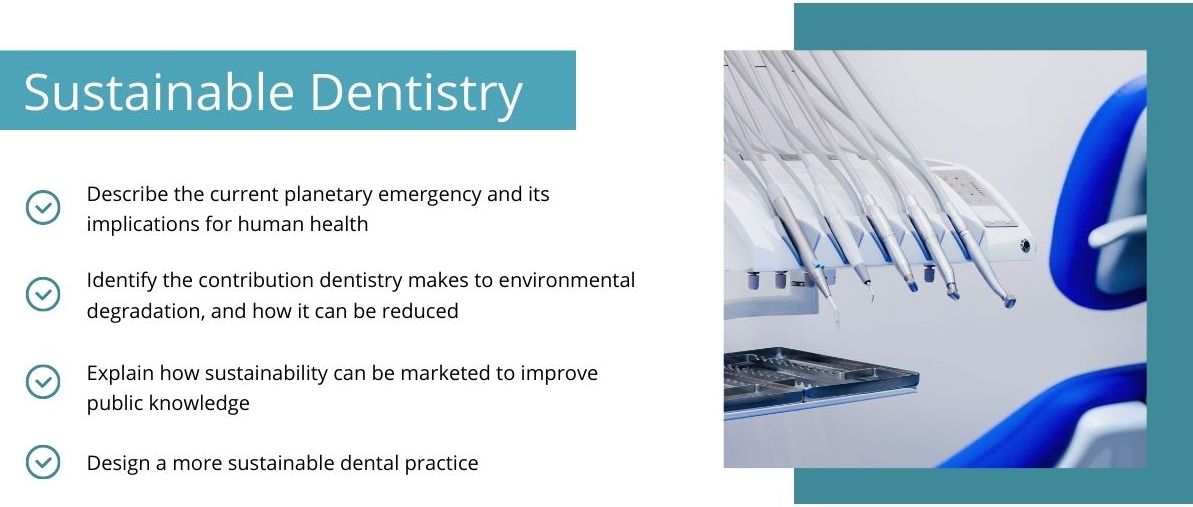Sustainable Dentistry Guide: Travel
 A recent study commissioned by Public Health England measured the carbon emissions and calculated the carbon footprint of dental services. It found that unlike the NHS wider health service footprint (where the carbon emissions contribution of travel is smaller), the highest proportion of emissions in dentistry is from travel (64.5%).
A recent study commissioned by Public Health England measured the carbon emissions and calculated the carbon footprint of dental services. It found that unlike the NHS wider health service footprint (where the carbon emissions contribution of travel is smaller), the highest proportion of emissions in dentistry is from travel (64.5%).
As well as producing carbon dioxide, petrol and diesel vehicles also cause local air pollution with significant health effects particularly on young children and people with respiratory and cardiovascular disease. Air pollution kills 40,000 people in the UK every year.
Reducing the need for travel and facilitating more sustainable alternatives such as public transport use, walking, cycling and car sharing will help to improve air quality and reduce travel associated emissions and sometimes also costs.
In a dental practice we need to consider staff and patient travel as well as transportation of goods and laboratory items to and from the practice. Patient journeys can be reduced by booking family appointments together and completing multiple interventions in a single visit, where possible. You may also be able to liaise with your suppliers and dental laboratories to reduce the number of deliveries.
In this section... How to:
Encouraging Active Travel
Active travel has many potential benefits including health, environmental and economic. Encouraging active travel such as walking or cycling will help to reduce the carbon emissions costs and pollution associated with using vehicles.
The National Institute of Clinical Excellence (NICE) recommends that employers develop policies to encourage employees to walk, cycle or use other modes of transport involving physical activity to travel to and from work as part of their working day.
Offering incentives such as prizes e.g. a pedometer, sportswear or gym/sports class memberships, signing up to the Government’s Cycle to Work Scheme (to enable staff to buy a bike tax-free) as well as hosting activities or cycling and walking events at the practice may encourage your staff to increase active travel.
Electric bikes (or e-bikes) are pedal bikes assisted by an electric motor. This can make cycling accessible to a wider range of people over longer distances – potentially with less sweating involved!
How dental practitioners can encourage active travel
- Install secure cycle parking at the practice
- Provide showers, changing facilities and lockers where possible
- Sign up to the Government’s ‘Cycle to Work Scheme’ and let staff know that it applies to e-bikes too
- Encourage and promote active travel options by sharing resources in the practice and on the practice website
- Display walking/cycling routes and maps of your local area in the practice
- Survey travel patterns of your staff and patients using an online survey tool (such as Survey Monkey) to find out how they currently travel and what could help them to incorporate more walking or cycling
- Liaise with your local gyms and sports centres to find out about facilities, membership promotions and options for your staff
- Start a step challenge! How about collating the pedometer count for the whole staff every week and see how high you can get it?
Electric vehicle charging points
Fuel-burning vehicles release emissions into the atmosphere which are harmful to the environment and to our health. A study has found that electric vehicles emit half the carbon emissions of diesel vehicles. Britain has made a commitment to ban all new petrol and diesel cars and vans from 2040 in a bid to tackle air pollution.
Providing electric vehicle charging points at your dental practice promotes the message of sustainability and can encourage staff and patients who travel by car to think about using an electric/hybrid vehicle. Charging points can cost as little as £300 if purchased through the Office for Low Emission Vehicles (OLEV), a government run scheme.
How to install electric vehicle charging points at your Dental Practice
- Liaise with car manufacturers and companies who provide electric vehicle charging point installation to receive more information about the feasibility of installation at your practice
- If your practice does not have a car park, liaise with your local Council to install charging points on public car parks nearby
- Display information regarding the benefits of electric vehicle use in the practice and where the nearest charging points are located
- Encourage providers of services such as your dental laboratory to switch to using an electric vehicle
Want more? Join our 3-part Sustainable Dentistry course
This course explores the evidence on how dentistry contributes to planetary harm, ways of reducing it, and prepares dental teams to become more sustainable healthcare providers.
- Part I. Self-study module
- Part II. Live workshop online
- Part III: Work-in-Progress

Learn more: https://sustainablehealthcare.org.uk/courses/sustainable-dentistry

